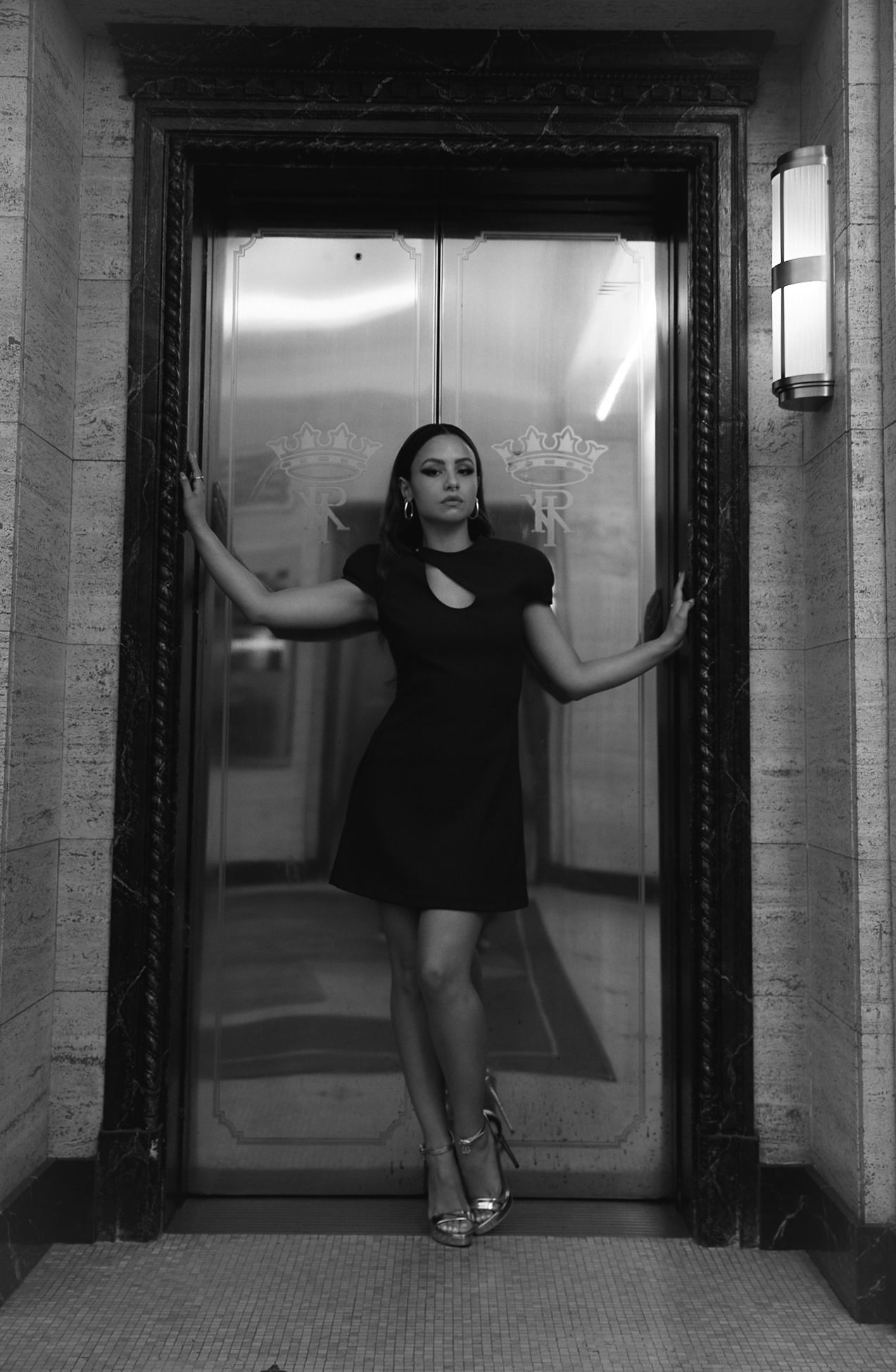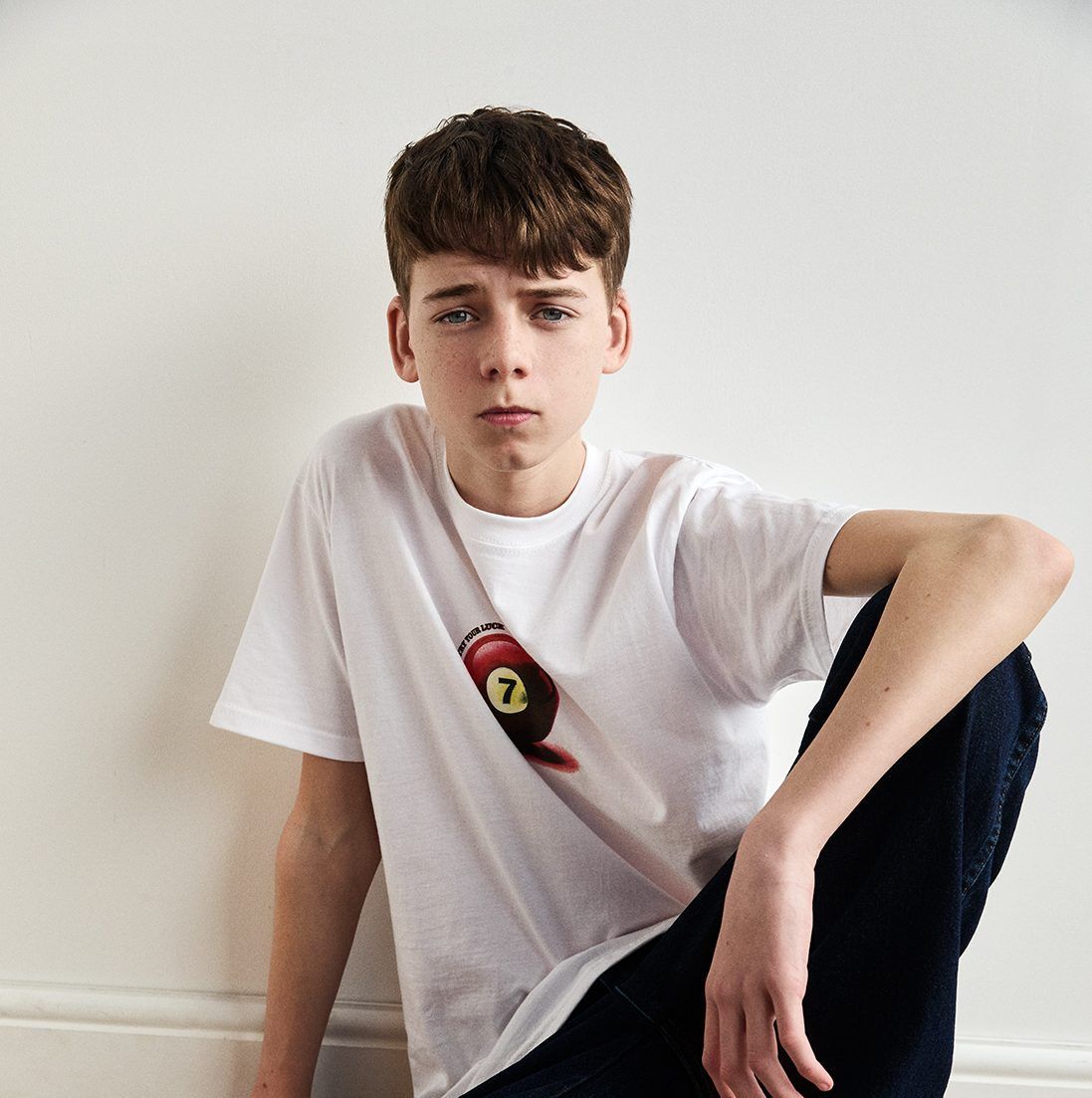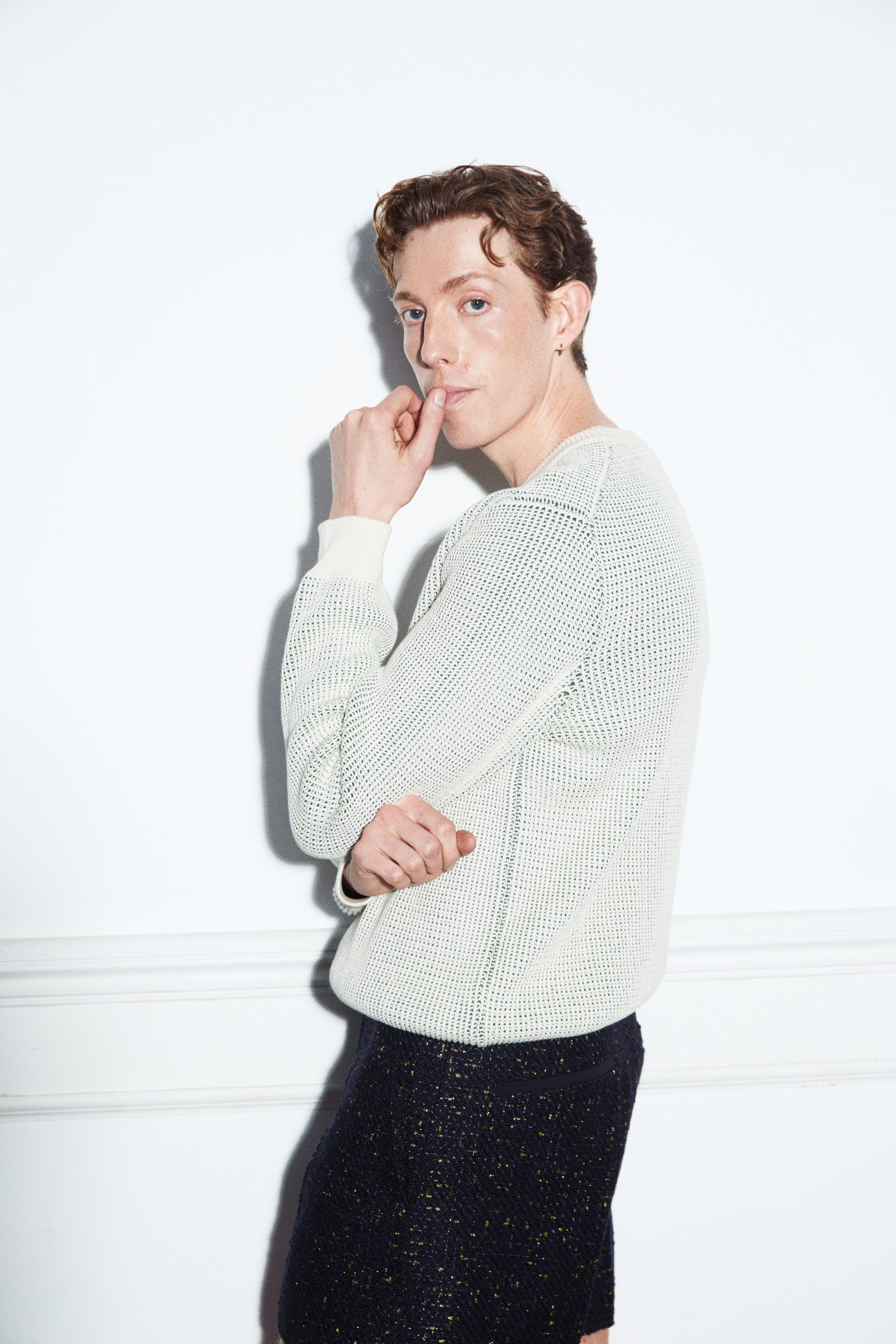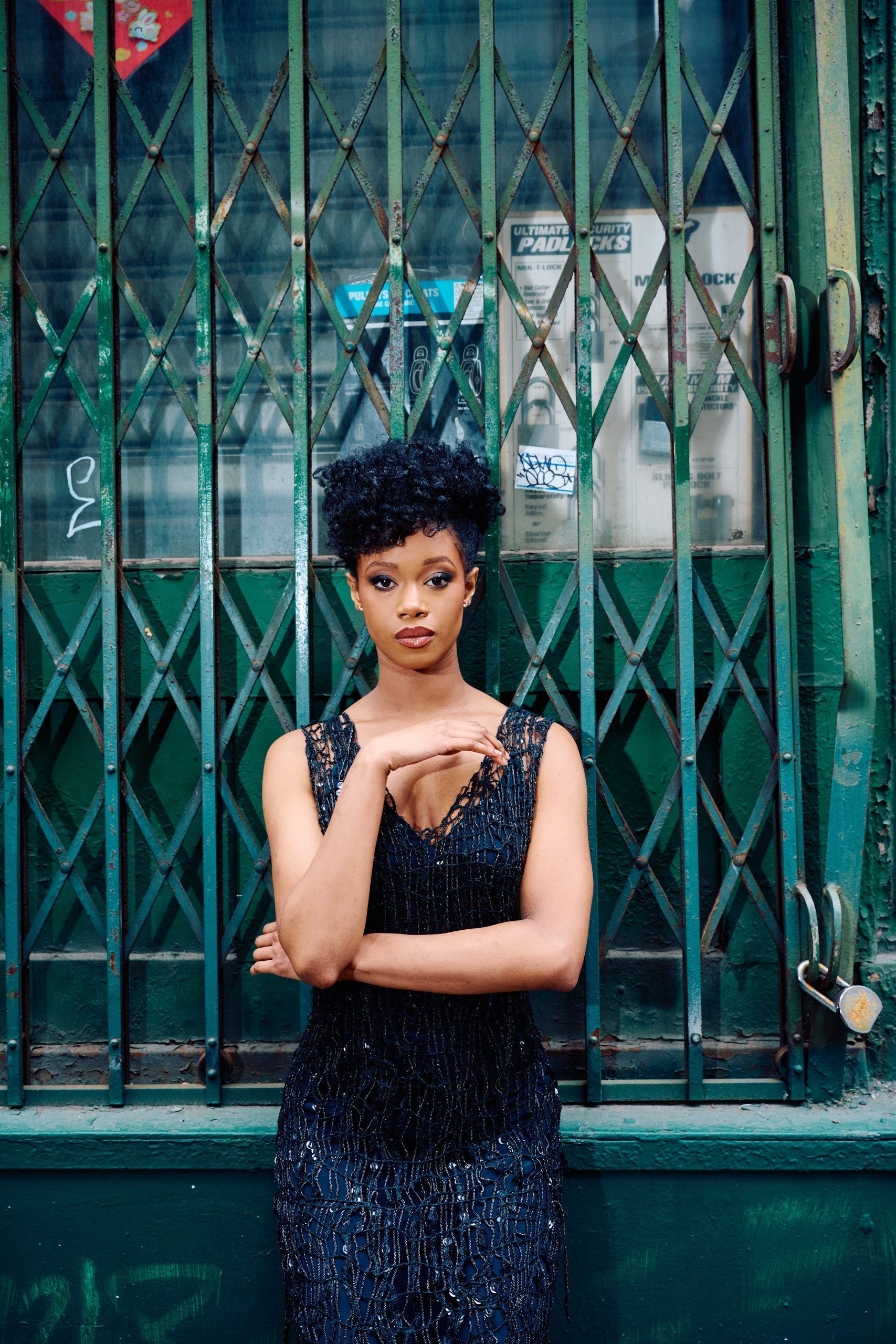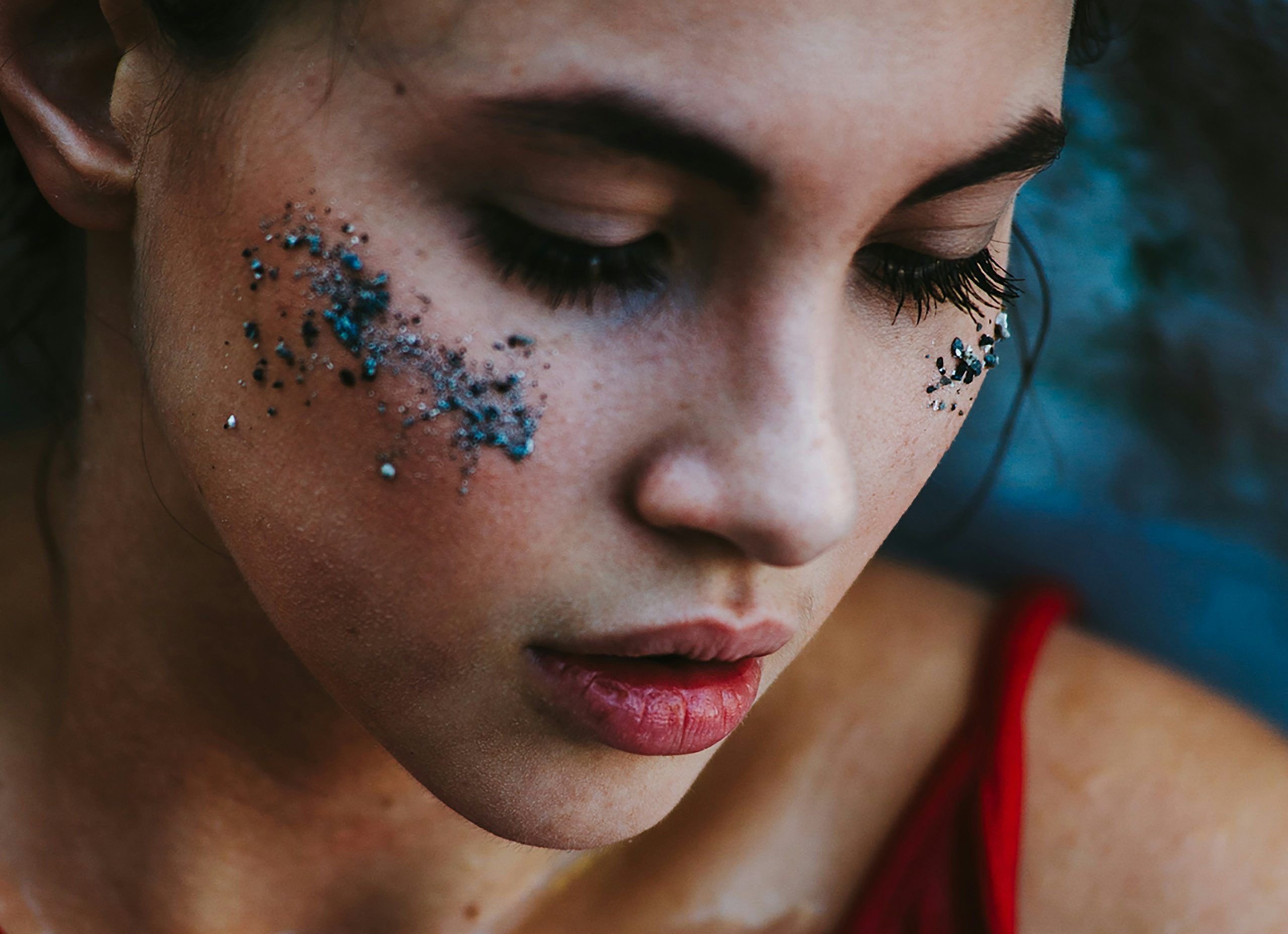There’s no ethical consumption under capitalism. The Menu takes this concept literally. Forcing the patrons of an elite, fine dining restaurant to reconsider their consumption of fancy foods.
Viewers of the film will be confronted with this concept too. But beyond the literal, we have to contend with other themes as well. The Menu steps into a broader conversation that asks you to reconsider your relationship with the consumption of media and the commodification of art. Aimee Carrero drives these themes home in her part as Felicity in the film. Felicity is quitting her horrible job and leaving her horrible boss behind to start a new one. In this role Carrero shines and brings a pitch perfect performance. She makes audiences laugh and grimace simultaneously. If that isn’t art, then what is?
In conversation with 1883 Magazine, Aimee Carrero discusses fine dining experiences, creating the backstory of her character and her past experiences working in a restaurant.
I just watched The Menu yesterday for the second time. It was so good. I’m so excited to be talking with you today!
Oh really!? What did you think?
I thought it was so fun. It was such a good time. It was so well paced and just overall a really enjoyable movie experience. I wanted to talk to you more in depth about this film in general. Was there anyone in particular in the cast and production team of The Menu that you were most excited to meet or work with? It’s got such a stacked cast!
Yeah, it’s so stacked. Honestly, it was one of those things where I got the email and you know, the only people at the time who were attached were Ralph and Anya. I thought, Oh my gosh, this is just already like such a dream come true. Then other people started trickling in and I was just that much more excited.
Of course, before I got the job. I had to do a chemistry with John Leguizamo. I knew that he was going to be in the movie because he’d already got the offer. That was just amazing because I had watched John for so many years. I’m a fan of his. I’ve seen every single one of his one man shows. So I felt an instant rapport, even though we’d never met before. I felt like I knew him. I felt very comfortable with him. So I think our chemistry read kind of was helped by the fact that I was such a big fan, because I knew his voice and his style.
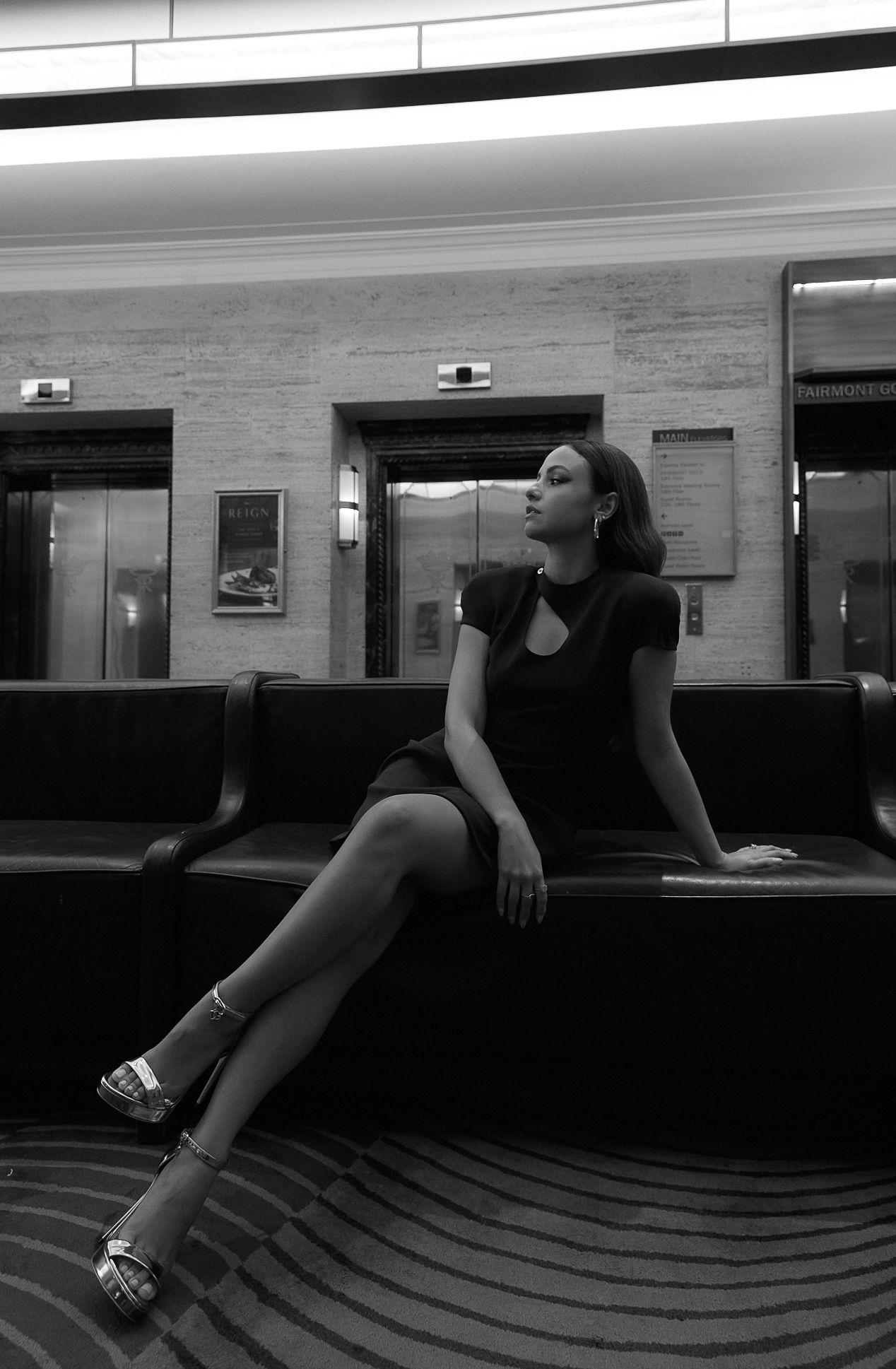
Your chemistry was really off the charts. I thought that whole relationship was really well done and really funny. I think everyone can relate to having a boss that you hate.
Oh my gosh, worst boss ever. We’d done a lot of work on the backstory because you know, like any good script, the less you say kind of the better. Film is such a medium of pictures right? It’s very visual, it’s not a play, you’re not gonna be told everything. We worked with the director and the writers and with one another to come up with a backstory that we felt was rich enough that we didn’t have to say much to each other, that we could just kind of riff off of when we were on the set.
We decided that one thing we really wanted to play around with was the power dynamics. So even though I’m his assistant, you know, I kind of have the upper hand in that I’m leaving the job, I’m going to work at a studio and it’s because my mother owns a studio. So I had this backstory that she was a child of Hollywood nepotism. She was play acting having this job where she was the assistant to a movie star for several years until she got old enough that her mom could give her job at the studio. John obviously plays this washed up movie star that’s trying to revive his career. So in a way, it’s like, my character, Felicity, has all the connections and all the power in the studio. It makes the relationship kind of complicated in that way. I think that complicated relationships are just more fun to watch.
It seems almost like he respects her, but at the same time, doesn’t.
Well, he’s trying to assert what little power he has, you know, like, go get my laundry and she’s like, umm as if.
This movie is about food and going to this gourmet food experience. The food looked amazing. As a viewer I was wondering if you were being served real food everyday.
Well, it certainly was edible, but a lot of the time it wasn’t the real thing that was advertised in the movie. So, for example, we had a scallop dish that was actually potatoes that were kind of undercooked and they kept wetting them with saltwater – which is so disgusting. Little things like that because they have to. No one’s gonna serve you scallops and let it sit there for 10 hours you know. For the actual photography of the food, like close up food shots, that’s obviously a real scallop because no one’s eating that. But for the most part, it was food styling tricks.
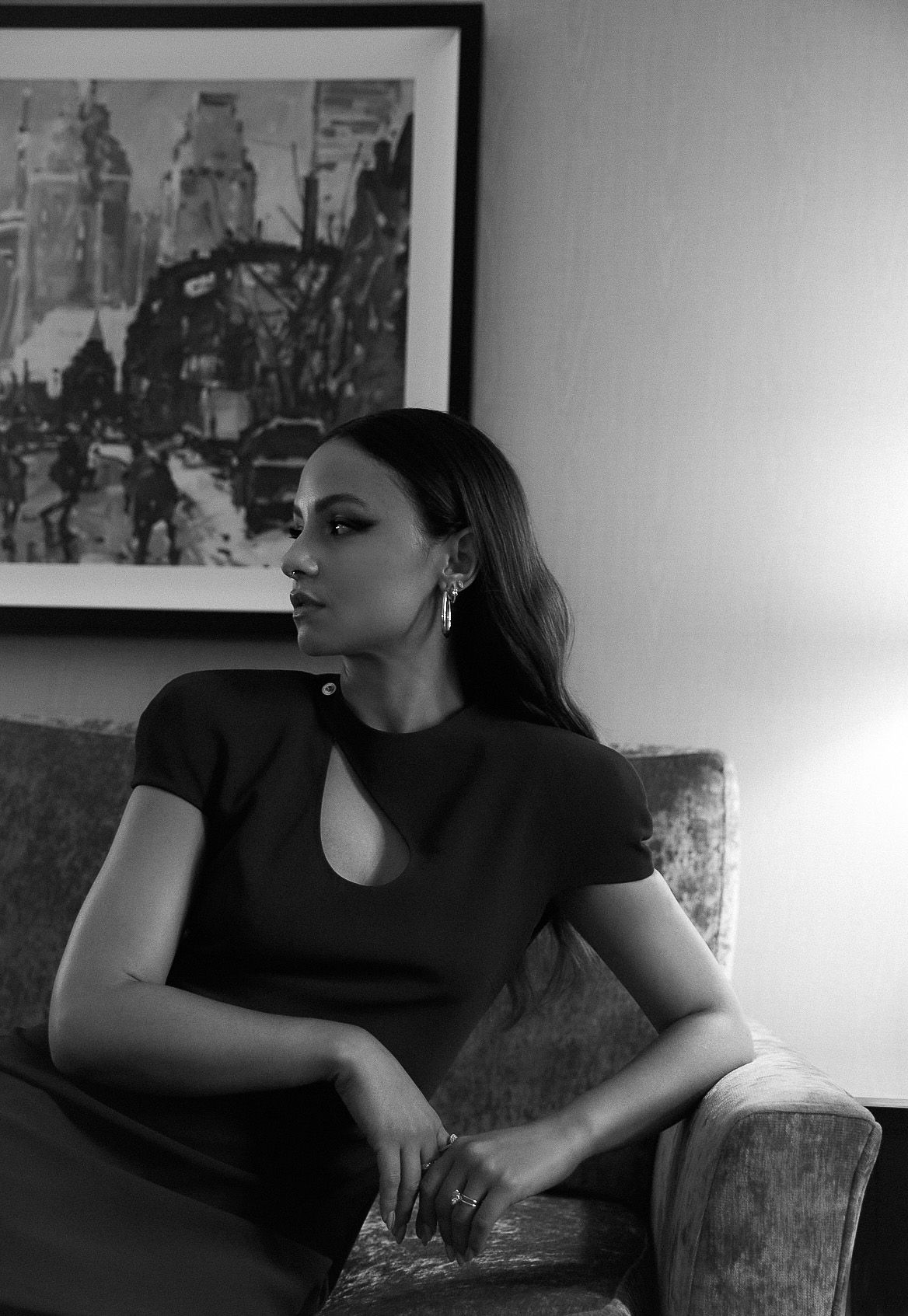
Are you a foodie in real life?
You know, it’s funny because I always thought foodie meant you’ll just eat the weirdest shit. Like you’ll just eat goat balls and like them and think they’re delicious. So, in that sense, I would say I’m adventurous. I’ll try anything. I don’t love super out there extreme food, but I love food. It’s so funny because I’m like, doesn’t everybody love food? But I guess not. I think about food a lot and I love cooking food. I’m Latin, so food is a very important part of the family dynamic in the culture. So, I would definitely classify myself as someone who really loves food, but it doesn’t have to be fancy. I love everything from fancy to mom and pop to fast foods.
Have you ever had a dining experience like that before?
I’ve been to some nice restaurants. I’ve never been to one on a private island but we went to Per Se the other day. We went to this restaurant in Chicago called Alinea, which I know is where Ralph got a lot of his inspiration for chef Slowik from their head chef. So I have had fine dining experiences. Thankfully none that have made me fear for my life [laughs]. For the most part, that’s a special occasion. You know, like on my honeymoon or like when my brother got engaged we went to Per Se in New York. So you know, on really, really special occasions and every now and then that food is such a treat. But I just can’t imagine having that on a regular basis. At the end of the day, I want what I want. I like comfort food. I love a great burger. When I’m hungry I’m going to want more than a deconstructed oyster plate.
So you wouldn’t spend $1,200 for some random bougie meal?
No. I guess if someone else was paying for it I would definitely enjoy it with gusto. But I don’t think I’d pay for it.
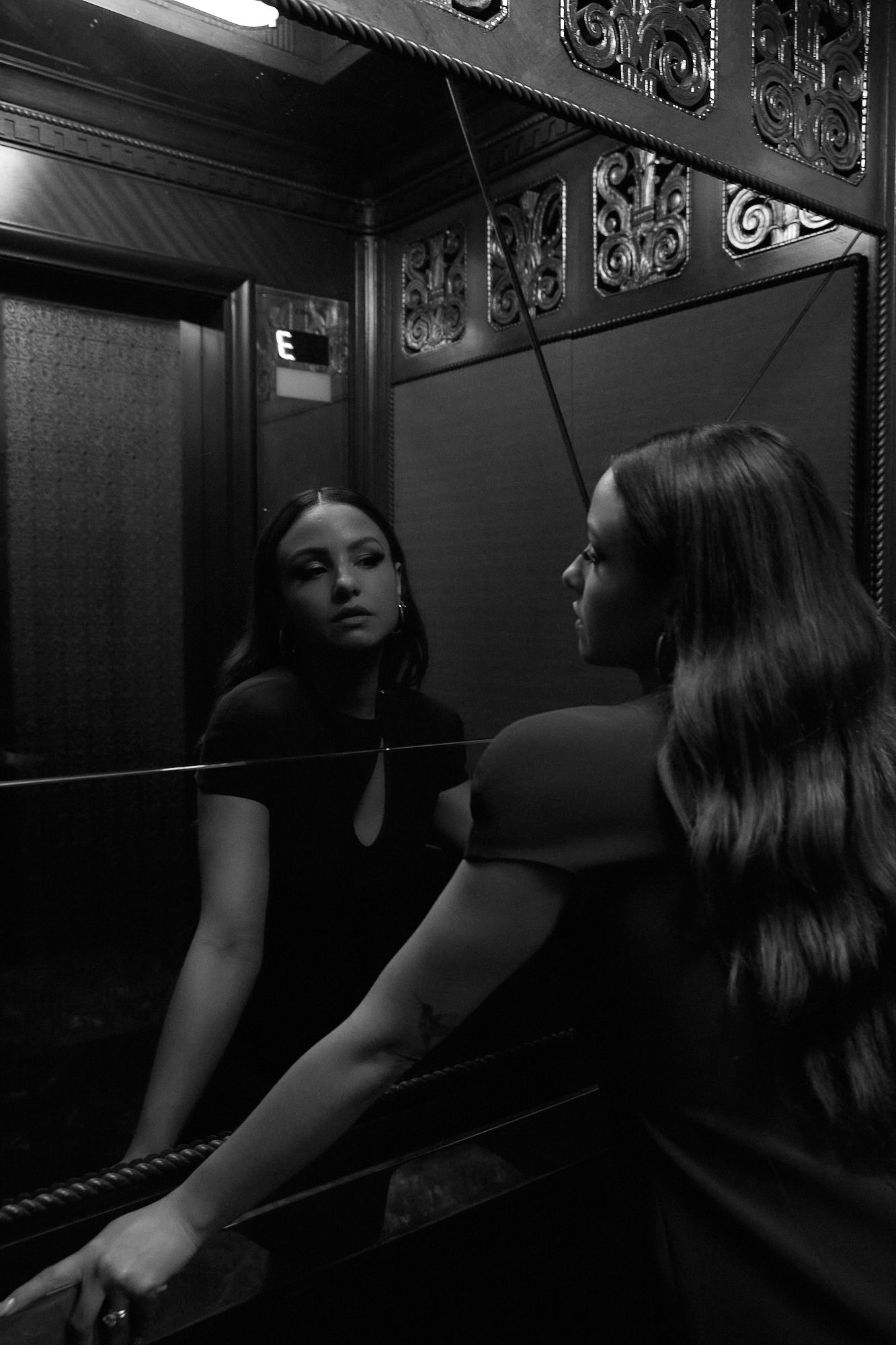
Definitely that’s fair. So your character is in the process of quitting her job. He seems like a nightmare boss. Have you ever had experience with terrible losses like that?
Yeah, I mean, I definitely worked in a restaurant before. I was a server at a restaurant and then I became a bartender. So we have really demanding bosses, nothing to the level of this – I was working in a steakhouse. It wasn’t a fine dining experience. But I have worked for people in the restaurant industry. I worked briefly in retail in college. You realize really early on in the service industry that it is the perfect barometer for how kind someone is or how human they are. You know, if someone mistreats the waitstaff you just know that they’re a shit person. You know what I mean? You can tell so much about someone from that.
In fact, when I first started in the business, I worked at this restaurant and I had gotten to meet this agent at his office and he was a really fancy agent at this top agency. He was really nice, and he liked me and wanted to sign me. Then the next day, he came into the restaurant because I worked in Beverly Hills, which is right next to all of the agencies, and he came in and never even looked up once. So I was like, “I can’t sign with this guy.” You know what I say about him? The fact that he’s not even looking at the waitstaff.
So beyond creating a little bit more of a background for your character, how did you prepare for the role?
Well, you know, it was kind of a quick process. It was funny, my husband and I were on our five year anniversary trip in Italy, and I got the call back. So I did the Zoom call back. Then I would say, like a week later, I had to be in Savannah to shoot the movie. So I think a lot of my preparation just came from having conversations with the writers of the script – Will Tracy and Seth Reiss. Mark Mylod, our director, did some rehearsals, which was really, really helpful. Because the tone is so specific for this movie. It’s like landing on an airstrip that is the width of a needle. It’s just very important to hit right because if you don’t hit it, then it’s too over the top and nobody wants to watch it. Or, if you under play it, and it’s just kind of boring, so it’s really specific.
I think that understanding and trusting that the filmmakers were going to calibrate the performance and ask for what they needed helped. I mean, we’re wearing chocolate hats at the end of the movie we were wearing, like, marshmallow jackets… like that can go very, very wrong. A lot of it was done in the rehearsal room and just trusting when Mark came over and gave us some notes. “Okay, okay, we’re gonna try another one. Let’s up the panic.” or “Let’s tone down the panic.” He was modulating the performances and that was really helpful.
Other than that, just having long conversations with John Leguizamo and working on our backstory together. Going over little details that were never going to come up in the script, but ones that would help us define certain moments in the script.
I know from one of the writers that Felicity was based on this ex-girlfriend of his whose mother is a very famous magazine editor. I did a little research on her and there were some interviews that I watched. I tried to embody that world she was supposed to be from. Which was very hard for me because I don’t come from that world. I’m from a solidly middle class family in Miami. My mom’s a teacher, my dad’s a civil engineer. I don’t know how to move in society spaces but I did a lot of research in that regard.
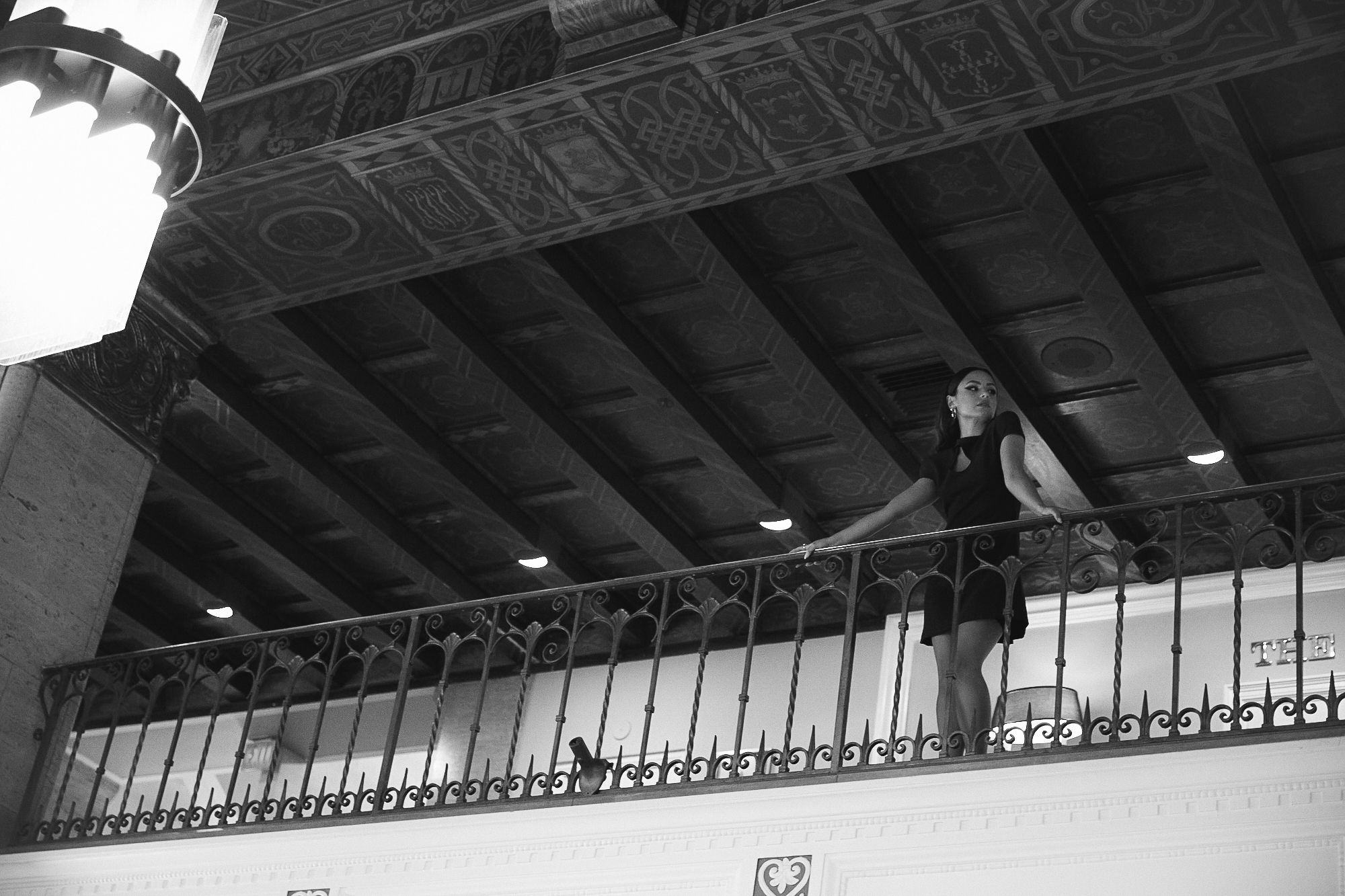
Early on the film chef Slowik requests that the patrons, “not eat, but taste.” Obviously this is very literal. This is a movie about food. But I think it can also be taken beyond this to look at the world’s larger consumption of media and art in general. We’re often consuming media, but are we actually appreciating it? Is it thoughtful, meaningful consumption? What’s your relationship with media like?
Oh, it’s so disordered, like everybody else. I’m constantly trying to constantly get off of social media. Trying to constantly be a positive force on social media, but then I realize “Oh, what a waste of time. Nobody’s listening anyway.” It’s just a very disordered relationship.
I think everybody suffers from it unless you’re not online. Then, in that case, people say you risk losing career opportunities or you risk not getting in touch with your friends and family. So you’re damned if you do you’re damned if you don’t. But I think that one of the main themes of this film, like you said, is not only this idea of very literally eat the rich, but also what does it mean to be a consumer of things? How are we culpable? How are we contributing to the solution or creating more of a problem, or are we just complicit? Are we just standing by and watching it happen? I think Felicity is on the spectrum of watching it happen, and also maybe contributing to the problem. You know with the nepotism and all that, she’s obviously the recipient of so much privilege. What you do with that information is important. Instead of altering your lifestyle to improve the lives of other people, we are often thinking about how we advance ourselves. Everybody is inherently self-serving in one way or another. It’s just survival.
I think in this particular case, you have in this movie, and I think any kind of good art is a reflection of society’s values and anxieties. We’re all so consumed with what we’re being fed. I mean, literally and figuratively. It all just feels so toxic. Sometimes I just need to get out and have some fresh air because Twitter is not real life.
I just think that that’s what I love about this movie. I really think that it has something to say and it doesn’t hit you over the head with it. It just poses the question and then you decide what you want to do. Which is the best kind of movie. It’s not too preachy or anything like that.
Definitely. You’re someone who consumes art of course but you’re also a creator of art as an actress. What do you think of this concept of the commodification of art which is another theme throughout the movie.
Well, that’s kind of what happens when you live in a capitalist society. You know, there is no ethical consumption within capitalism, it’s just what we’re made to do. When people become commodities, of course, art will become a commodity too.
What’s interesting about this film is that they’re making the point and they’re using food. Food is a basic necessity. Everybody needs food to survive. Yet, in this film, it’s elevated to such a degree that only a certain amount of people are deemed worthy enough to eat or can afford this experience. It’s taking something that is a basic need, and allowing it to become a marker of status and privilege and worth. Sometimes I think art can be that way. Sometimes it can be very exclusive. Art in its purest form as we go back to the ancient Greeks putting on plays or, you know, even prehistoric cultures leaving art on walls – it’s for the people. It’s to reflect humanity and to leave a mark. To say we were here and we’re still here. I think art sometimes loses that thread. You lose the love and the soul. When it loses its soul, then it ceases to be human. It ceases to be anything that resonates with anyone and then it’s just what it is. It’s just a price tag. It’s just an expensive thing you put in your mouth or you hang on your wall, you know, another subscription service or whatever.
Definitely. The movie gave me a lot to think about. The first time I watched it very literally and just enjoyed it. But the second time around, I was viewing it with more of a critical lens on. I think I could talk to you forever about these two different concepts I brought up, but there’s so much more to it than just those two themes!
Yeah, you know, it’s so funny because the chef is obviously guilty of the thing that he’s accusing his guests of. He brings his guests there to die – he brought the movie star there because he made a bad movie and therefore believes that he should die. But here’s chef Slowik – he indicts himself with that crime, you know, he says, “I’ve allowed my food to get to the place where only a certain class of people can enjoy it.” Yet he offers no answer, no forgiveness, no accountability. Obviously deranged. I see him as a cult leader. But it’s that idea where sometimes you just lose the thread so badly that though you might make some good points along the way, the overall message is totally tarnished by the actions – by what you do, not just by what you say.
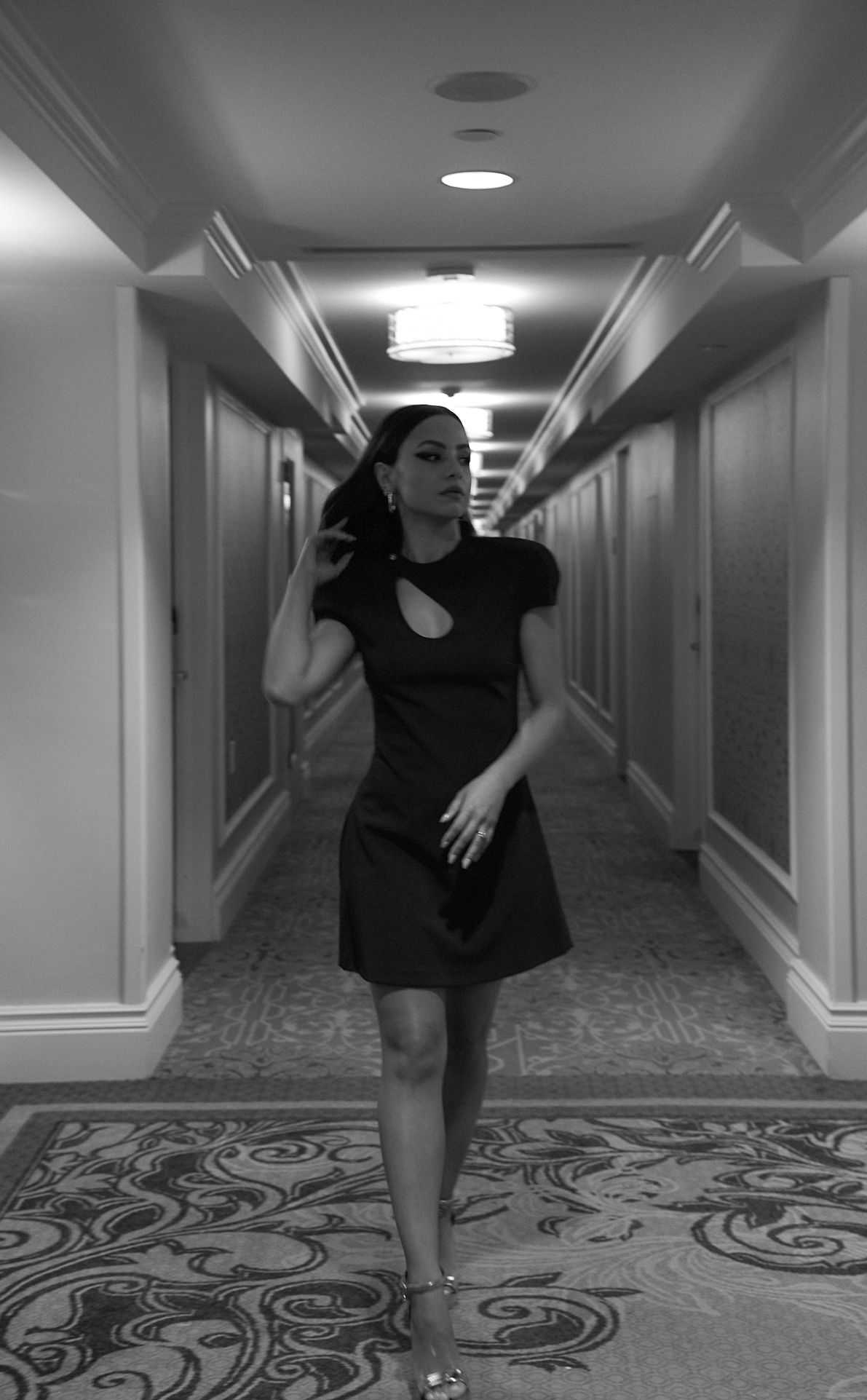
What’s the biggest takeaway you’re hoping that audiences leave with after seeing this film?
You know, at the end of the day, it’s a film right? It’s something that people made so people can enjoy it. I think it’s always nice to make people think, and certainly what a compliment. I mean, I’ve done so many jobs and acted in so many projects that are just pure fluff and you know, there’s space for that, people need fluff. I think sometimes people need their coffee and doughnuts, and sometimes they want steak. I think this will be a steak. It’s complex enough where you can think about it and go home talking about it, and people will have an opinion on it whether they hate it or they love it or they love the message or hate the message and think we got it right or not.
But ultimately I want people to take away that the thing we talked about before with consumption. Whether something is in your idea of good or bad. Someone took time out of their life to make it. When you’re at a restaurant and you’re just shovelling food in your mouth – and I do this too – but do we really take the time to think, “Oh, this actually took hours to prepare. Someone’s spent a lot of time and sacrificed a lot to make this moment happen for me.” I think it’s good to have that gratitude when consuming anything, especially art, you know, whether it’s a film or a painting, or a piece of music, or dance or whatever, it’s important to remember that this is an expression of humanity, whether you think it’s up your alley or not. It’s fine, but let’s remember the humanity behind the art. I hope the next time you go out to eat at a restaurant, hopefully, you just take one second and say thank you to whoever made this.
I love that. What are you looking forward to doing next in your career?
Well, I just wrapped up a show for Amazon called The Consultant starring Christoph Waltz, who is incredible. It’s also kind of dark. There are some comedic moments but it’s very dark and strange which I love. I would just honestly love to kind of continue on this trajectory. It took me a really long time to get to the point where I feel like I’m being considered for material that is material that I like to watch, elevated stuff.
I got to do this wonderful rendition of Who’s Afraid of Virginia Woolf over this spring, and that was really cool. And, you know, it’s out of the box casting, I mean, obviously Who’s Afraid of Virginia Woolf was written in 1962 by Edward Albie. It’s traditionally for white people in a room to white couples and they were good enough to cast me. I had a ball and I think I contributed to the piece. I would love to see more of that. I would love to see opportunities come my way that aren’t necessarily typecast in that regard and they’re considering me for my talent and nothing else. I did feel that way with The Menu and Maid, which was really good to work on. But with The Consultant I really felt like they put the artists first. That’s really cool because that’s not always the case when you are a person of colour or an actor of colour.
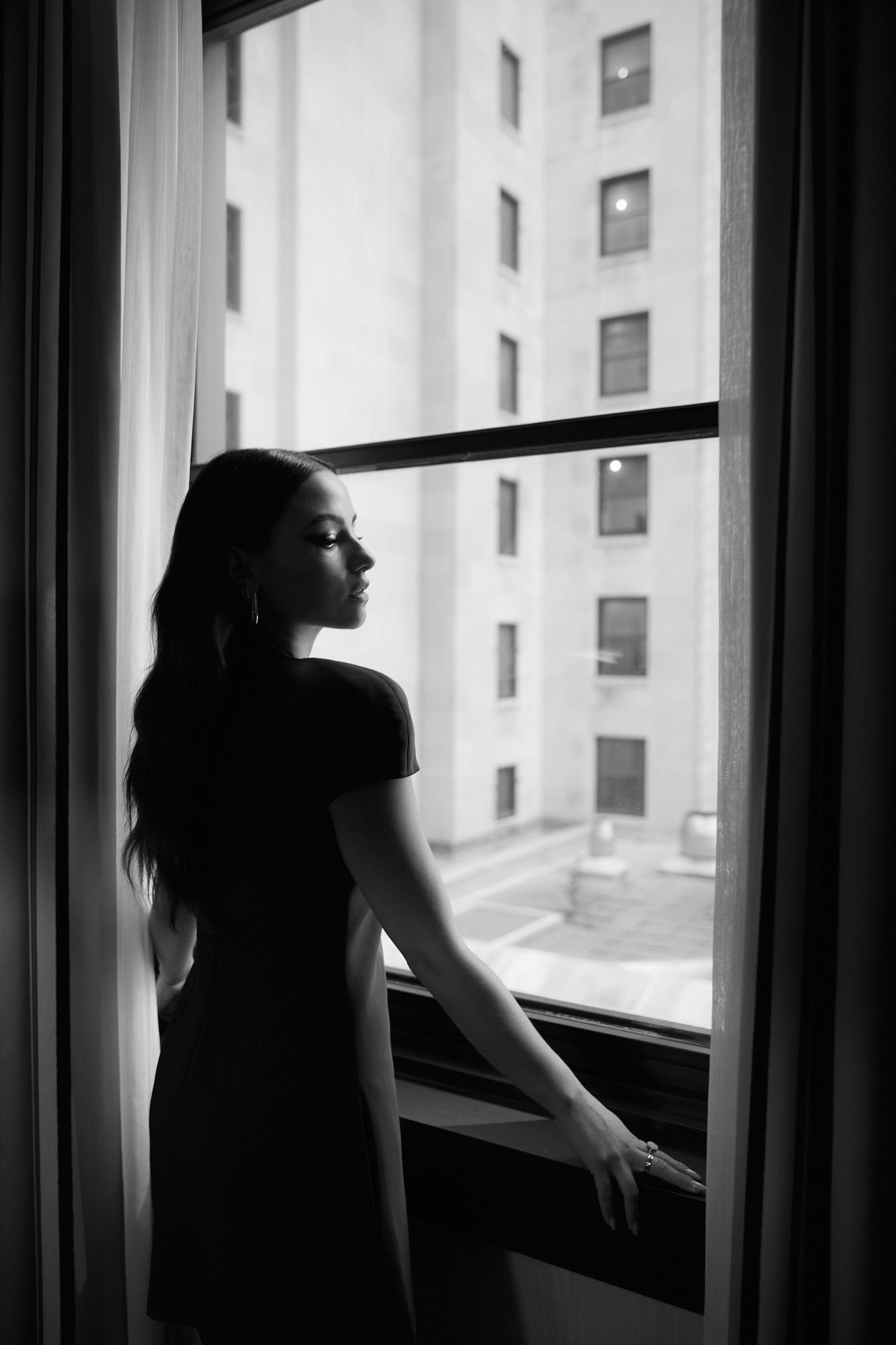
The Menu is streaming now on HBO Max.
Interview Kendall Saretsky
Photography Klara Waldberg
Styling Brad Goreski
Hair Erin Klassen
Make up Simone Otis

